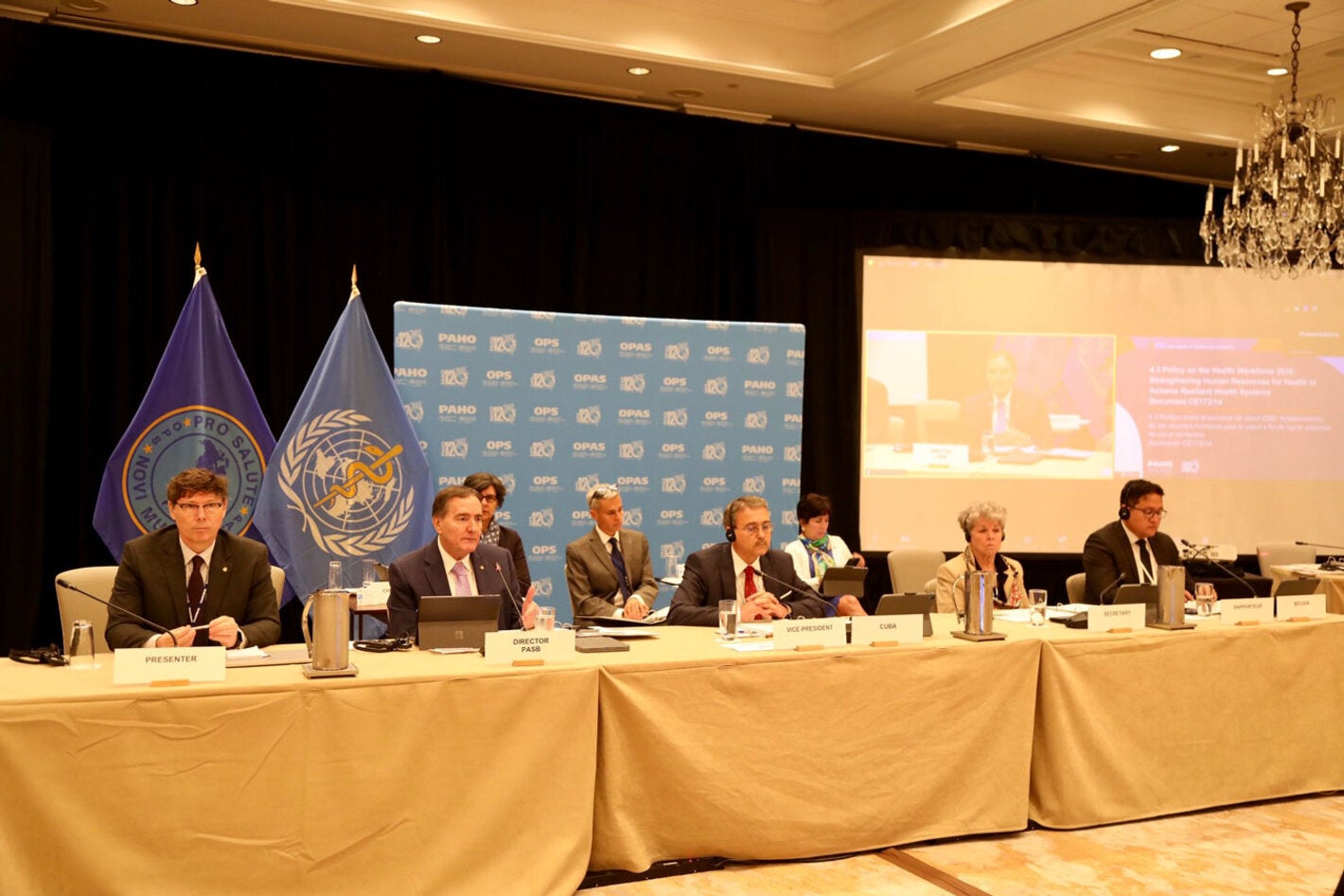
Washington, D.C., 26 June 2023 (PAHO/WHO)- The Executive Committee of the Pan American Health Organization (PAHO) began its 172nd session today. The Committee will examine the resolutions, strategies and policies to be presented to PAHO’s 60th Directing Council in September, with the aim of improving the health of the population of the Americas.
The Committee, which is composed of nine PAHO Member States, will establish new priorities for the Organization’s technical cooperation. It will take place until Friday 30 June in Washington, DC.
Among the main topics to be addressed include a policy to strengthen the health workforce for resilient health systems; a policy for the prevention and control of non-communicable diseases in children, adolescents, and youth; strategic public health communication for behavior change; and a strategy to improve mental health and suicide prevention in the region.
In his opening speech, PAHO Director Dr. Jarbas Barbosa called on countries to renew the spirit of Pan Americanism. "We are stronger when we work together and more effective when we pursue our goals with a common voice and a common purpose.
The PAHO Director urged countries to "work together to ensure that public health remains a political priority now that the pandemic is over" and to "collectively push for the region to be a leader in public health innovation and play a more prominent role in shaping the global health agenda".
During his speech, Dr Barbosa, who took office almost five months ago, recalled the five pillars of his administration and detailed the changes he has already implemented in to increase PAHO's efficiency in addressing public health challenges in a post-COVID-19 world.
"The risk of vaccine-preventable diseases is at an all-time high and there is an urgent need to increase surveillance and immunization coverage," Dr Barbosa said. He also considered it "critical" to improve maternal, newborn and child health indicators and to address "the rising burden of non-communicable diseases, including mental health conditions.” He stressed that climate-related threats pose additional risks.
"And yet, I am more confident than ever in our region's ability to respond. The pandemic put the Americas to the test, but it also revealed what’s possible when we work as a collective and make public health our highest priority," he said.
Dr. Barbosa asserted that "the urgency, innovation and solidarity we employed to overcome COVID-19 should not be reserved only for times of emergency" and stressed that, as Director of PAHO, he wants to "bring the same urgency and innovative approach to address our most pressing health challenges and ensuring equitable access to health care for everyone in the Americas".
"This Executive Committee meeting provides a valuable platform to shape the Organization’s approach to addressing these challenges and ultimately improving health outcomes" in the Americas, he said.
During this week's meeting, representatives from Argentina, Bolivia, Brazil, Chile, Cuba, Jamaica, Suriname, the United States and Uruguay, who are members of the Committee, will receive an update on the COVID-19 pandemic in the region, as well as final reports on issues such as the elimination of neglected infectious diseases, tobacco control, and health and tourism, among others.
In addition, they will be presented with progress reports on a number of issues such as the Disease Elimination Initiative, the strategy on donation and equitable access to organ, tissue and cell transplantation, and the strategy on universal health access and coverage.




